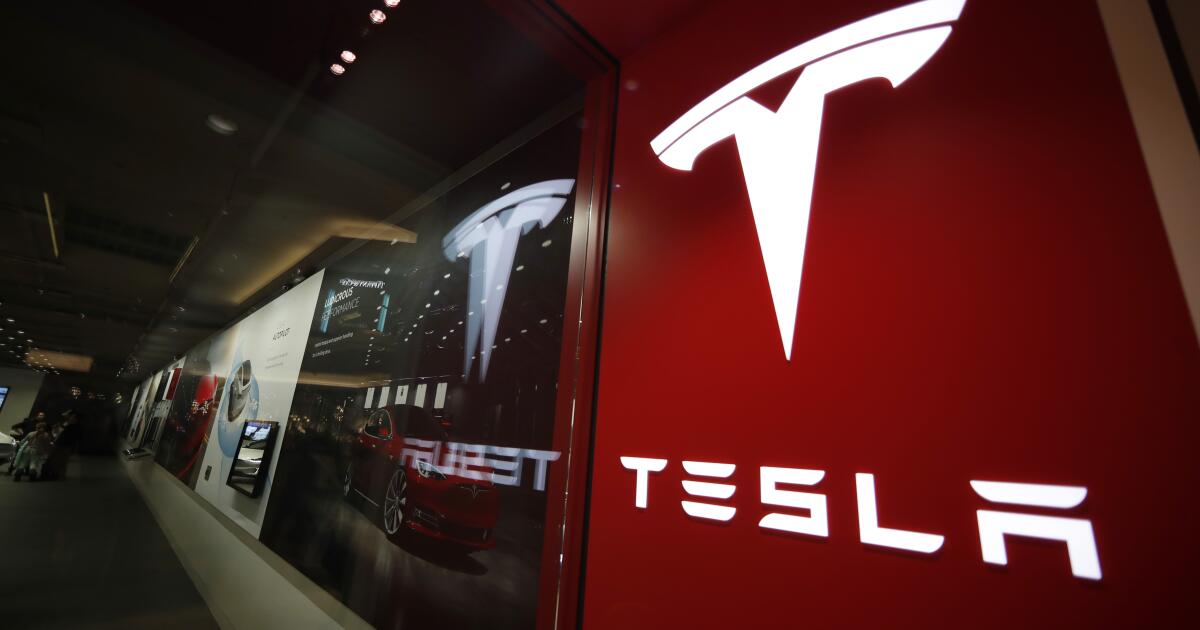Tesla shares took a hit Monday after a leading analyst slashed his price target by more than 40%, citing a “perfect storm” created by President Trump’s auto tariffs and Elon Musk’s deteriorating reputation.
Wedbush Securities analyst Dan Ives cut his price target from $550 to $315 over the weekend while maintaining his “outperform” rating of the stock.
Shares dipped as low as $216 Monday morning, a more than 9% drop. They closed at $233.29 Monday afternoon, down 2.5% for the day.
U.S. Commerce Secretary Howard Lutnick urged Fox News viewers to buy Tesla shares last month, declaring that the shares would “never be this cheap again” when they closed at $235.86 on March 19. The next day, Musk encouraged Tesla employees to “hang on” to their stock at an all-hands meeting.
Shares have plunged nearly 40% since the beginning of the year and have fallen 55% from a record high in December. The stock soared with Trump’s victory over Kamala Harris in November’s presidential election, as many believed Musk’s association with the president-elect would bolster Tesla’s value.
However, Musk’s controversial role in the Trump administration has created a “brand crisis” for his electric vehicle company, Ives said. Some Tesla owners once drawn to the vehicle’s environmental benefits have since denounced Musk, who runs a White House advisory team he calls the Department of Government Efficiency.
Opponents of Trump and Musk have organized anti-Tesla protests and have even vandalized or destroyed Tesla vehicles and charging stations.
“The more Musk is attached to the Trump administration and DOGE, the brand damage goes from containable to permanent,” Ives said in an interview. “Tesla has become a political symbol around the world and that’s not a good thing.”
Tesla, which is based in Austin, Texas, but has a significant manufacturing plant in Fremont, Calif., has lost about 10% of its future customer base globally, Ives predicted, because of brand issues “self-inflicted by Musk.” The company’s reputation is under fire in China, where consumers are reacting to Trump’s tariff policies, Ives said.
A Tesla representative could not be immediately reached for comment.
Trump’s auto tariffs will upend supply chains and drive up the price of vehicles and parts, which could further hurt Tesla’s sales. While Tesla is less exposed to tariffs than other U.S. automakers such as Ford and Stellantis, Ives said, the company still sources several parts and batteries from outside the country.
Tesla delivered 336,681 vehicles in the first quarter, the company announced this month, well below original industry estimates of 400,000.
Ives remains optimistic about the company’s plans for autonomous driving technology and a robotaxi service, he said.
Tech stocks have also taken a big hit since Trump unveiled new tariffs, underscoring unease among investors. Last week, analysts said the price of Apple’s iPhone could cost $2,500 more depending on the model. Since April 2, when Trump announced new tariffs, Apple’s stock price has plunged roughly 19 %.
Tariffs could also make it more expensive to build data centers and affect companies such as Meta that make money from advertisers in China.
Stock prices swung up and down amid rumors that Trump could pause the tariffs for 90 days, but the White House refuted the claim on social media.
On Monday, Apple’s stock closed at $181.46, down 3.6%. Other tech companies including Google parent company Alphabet, Nvidia and Amazon saw their share prices rise slightly. Meta, which released its latest artificial intelligence model over the weekend, closed up 2.3% at $516.25.

